Who hasn't watched those YouTube videos of joyful couples and families enjoying life at sea?
It's fair to say that Sailing la Vagabonde set the stage with their popular videos. Before their influence, the idea of sailing around the world seemed exclusive to seasoned sea captains or those with substantial financial backing. Now, it feels... achievable.

How many of us have shaped new dreams around this vision of one day being the captain of our own boat, sailing the world with our dream partner and a joyful family? Going through highs and lows and living so many adventures.
I've felt that Monday morning existential gut-punch when staring at my inbox, coffee growing cold, thinking why I'm wasting my youth in this office building while there's a whole world of ocean adventures waiting out there. I even caught myself wondering: ''will there be any fish left in the sea when it's finally my turn to sail the world?'' I was just experiencing the typical modern GenX affliction: knowing too much about the paths not taken.
And I am certain I'm not alone in this feeling. It's striking how these videos highlight the contrast between our structured daily routines and the freedom of life at sea. No matter how many "it's not always paradise" disclaimers these seafarers make, glimpsing another path only magnifies the frustrations of our current one.
Why do we persist with the 9-to-5? To afford rent in expensive cities and maintain lifestyles that often drain us. Society's blueprint for success follows a predictable pattern: small apartment in a big city, days spent in cubicles or open-plan offices, commuting in metal boxes, eating in enclosed spaces. We move from one container to another, bedroom to bathroom to office to restaurant, following a path laid out for us rather than one we've discovered on our own.
So like many others, I realized living outside the conventional system is apparently possible.
In fact, living outside on a boat is utterly possible.
I'd like to share a few thoughts on what to consider before taking the leap. Speaking from experience, my own attempt at this lifestyle didn't quite work out as planned, but that's a story for another day.

1 - Money is your Mate
No matter the boat you have in mind or the lifestyle you envision, money will be your number one consideration for turning your dream into reality. If you're not already financially set, here are your options:
The Financial Independence Route – Build substantial savings and invest wisely to create passive income that covers your cruising lifestyle. Consider embracing the FIRE movement (Financial Independence, Retire Early) to shape your spending and investment strategy.
This is the golden ticket, but often requires waiting several years while you build your nest egg.
The Content Creator Path – Don't want to wait? Plan to build income through content creation channels. Success stories like "Spear it Animal" exist, but this path requires thick skin and comfort with public sharing. You'll film everything, edit in anchorages, chase WiFi like buried treasure, and pray the algorithm gods smile upon you. It works for some, but the constant production schedule alongside sailing responsibilities is undeniably exhausting.
An option only for the brave and hardworking.
The Digital Nomad Sailor – Continue your remote work while at sea, Starlink dish mounted and MacBook ready. This can be surprisingly difficult: anticipate inconsistent connectivity even with top-tier solutions, power constraints, and electronics at risk from salt and humidity. Weather dictates your schedule, not your calendar. Full-time employment means explaining mid-meeting anchorage changes to your boss, while freelancing means juggling boat maintenance with client deadlines.
Most eventually choose either part-time sailing or part-time work. Success requires a truly flexible job with minimal meeting requirements – rare, but potentially perfect!
The Sabbatical Sailor – Perhaps the most realistic approach. You're not leaving forever, just taking an extended break – a year, maybe two. You'll return to shore life eventually, but with salt in your hair and stories that will last a lifetime. The finite time frame makes budgeting simpler and eases the pressure of maintaining income while sailing.

2 - Anchoring Your Intentions
Think clearly about why you want to do this. You must pause on this question and spend time discovering why you would want to live on a floating home, in a sometimes brutal environment where your life can be at risk.
What truly drives you? Books like IKIGAI can help you explore this, but first, recognise the questionable motivations that often lead to abandoning the sailing dream:
- Romanticising sailing life beyond reality (the hardest bubble to burst)
- Simple boredom (a vacation might be all you need)
- Wanting to prove something to yourself (not worth risking your safety)
- Trying to impress or spite someone else (an even worse foundation)
- Adopting someone else's dream as your own (you can't force it)
- Running away from expectations or societal pressure (the sea won't solve these)
In contrast, these motivations tend to sustain sailors through the inevitable challenges:
- A profound hunger for freedom that overshadows all hardships – the one fuel that doesn't perish and will keep you afloat no matter what
- A genuine appetite for adventure, nature connection, and calculated risk
- A persistent call that has echoed in your mind for years
- Comfort with challenging environments, where becoming a sailor feels like a natural evolution rather than a dramatic life change
Simply put: The right foundations are a genuine thirst for freedom, high risk tolerance, and an authentic pull toward adventure that predates your sailing dreams.

3 - Your Journey's Thread
Having a purpose, even a seemingly simple one, will help a lot for long-term sailing. Find the Ariadne's thread that will guide your journey. It might be a philosophy like Sailing Uma's "never be in a hurry to go anywhere" or a mission like documenting disappearing coral reefs, collecting stories from coastal communities, or even something whimsical like building an international collection of garden gnomes (channeling Amélie Poulain).
What matters isn't the grandeur of your purpose but its personal significance. This becomes your anchor when doubt inevitably arrives. Without purpose, the endless horizon can transform from liberating to oppressive. The vastness of the ocean has a way of confronting you with your own insignificance, and in those moments, having a clear mission will keep you oriented when the compass seems to spin.

4 - The Psychology of Sea Nomads
Do you have the nomadic profile? This self-assessment might be the most challenging but crucial step. Life at sea demands psychological strengths that shore life rarely tests.
The wandering lifestyle dismantles the habits and routines that normally anchor our confidence and mental health. Without the structure of regular working hours, social commitments, or even familiar surroundings, you'll need to create your own stability from within. Many sailors struggle with this invisible challenge more than with actual sailing skills.
You won't belong wherever you go; that sense of ease from knowing your neighborhood vanishes. You'll always be the foreigner, the outsider passing through. The casual community connections we take for granted—your barista who knows your order, the neighbor who waves hello—these small but meaningful interactions become rare luxuries.
Gone too is the nourishment of proximity to your support network. Instead, ask yourself honestly: How do you recharge? With people or solitude? Through music or silence? With structured planning or spontaneous adventure? Through physical activity or mental stillness? Your coping mechanisms and comfort sources become exponentially more important when your entire environment is fluid.
The most successful solo or couple sailors aren't necessarily the most skilled—they're the ones who thoroughly understand their own psychological weather patterns and have developed robust internal navigation systems to embrace the storms of isolation, uncertainty, and self-doubt.

5 - Balancing Adventure and Discipline
Sailing the world naturally attracts adventure lovers, free spirits who embrace life's spontaneity and crave new experiences. Yet there's an interesting paradox at the heart of successful cruising: the carefree dreamer benefits from partnering with the meticulous planner. While the adventurous side draws you toward distant horizons, it's the disciplined mind that keeps you safe through careful navigation, consistent boat maintenance, and thoughtful risk management. Many aspiring sailors focus on the romance while underestimating the attention to detail involved, from weather forecasting to engine care to provisioning logistics. The most fulfilled sailors aren't solely spontaneous adventurers or rigid technicians; they've found ways to harmonize both mindsets.
The freedom of sailing life is often enhanced by discipline, making it a journey of balance as much as distance.
Survival Tips
If all of this is clear and you decide you're ready to go, I would give 2 survival tips:
-
Go in small steps – Try a few weeks or months on your sailing trip. Feel the breeze and test your skills.
-
Train, train, train – The more knowledge you gather, the better. Consider professional training to build both skills and confidence. Immerse yourself in knowledge through books, videos, and hands-on practice.
Sail With Sailing Virgins
Ready to trade your desk for a deck? Sailing Virgins offers transformative liveaboard experiences in the Caribbean, Mediterranean, and Tahiti. Our certification courses welcome aspiring sailors of all levels—from complete beginners to those looking to refine their skills. Whether you're testing the waters with a short course or preparing for a major life change, we'll help you build the confidence and competence to navigate your sailing dreams. Discover your sailing journey here.

Have you been dreaming of sailing away from it all? Share your thoughts in the comments below!

